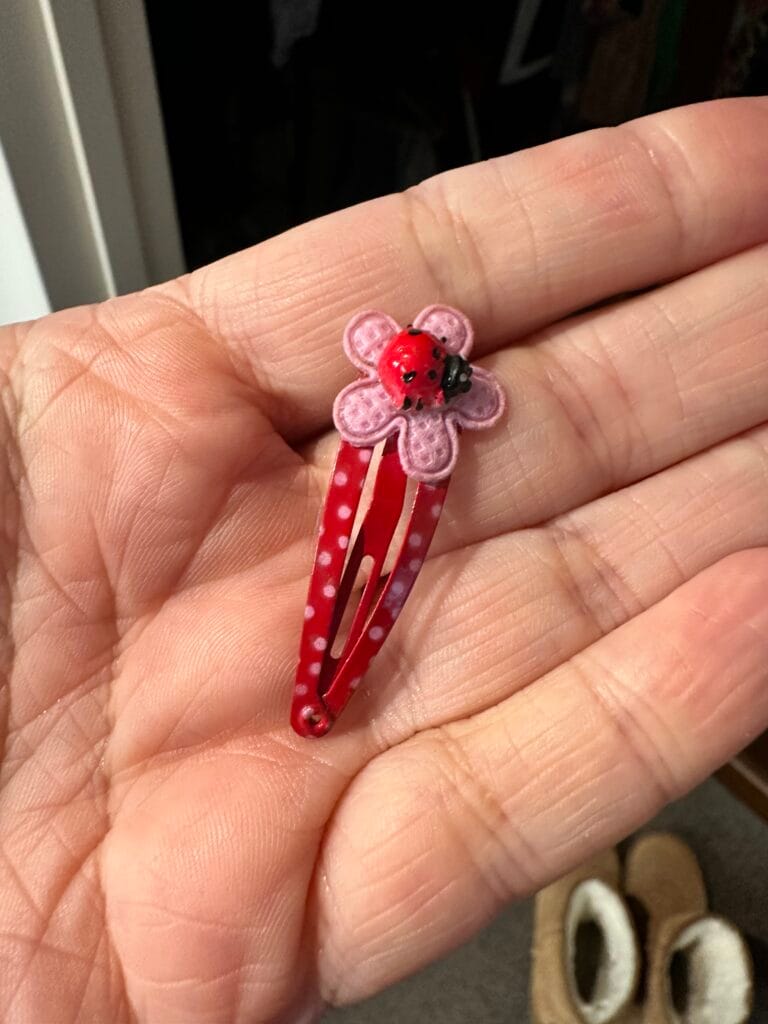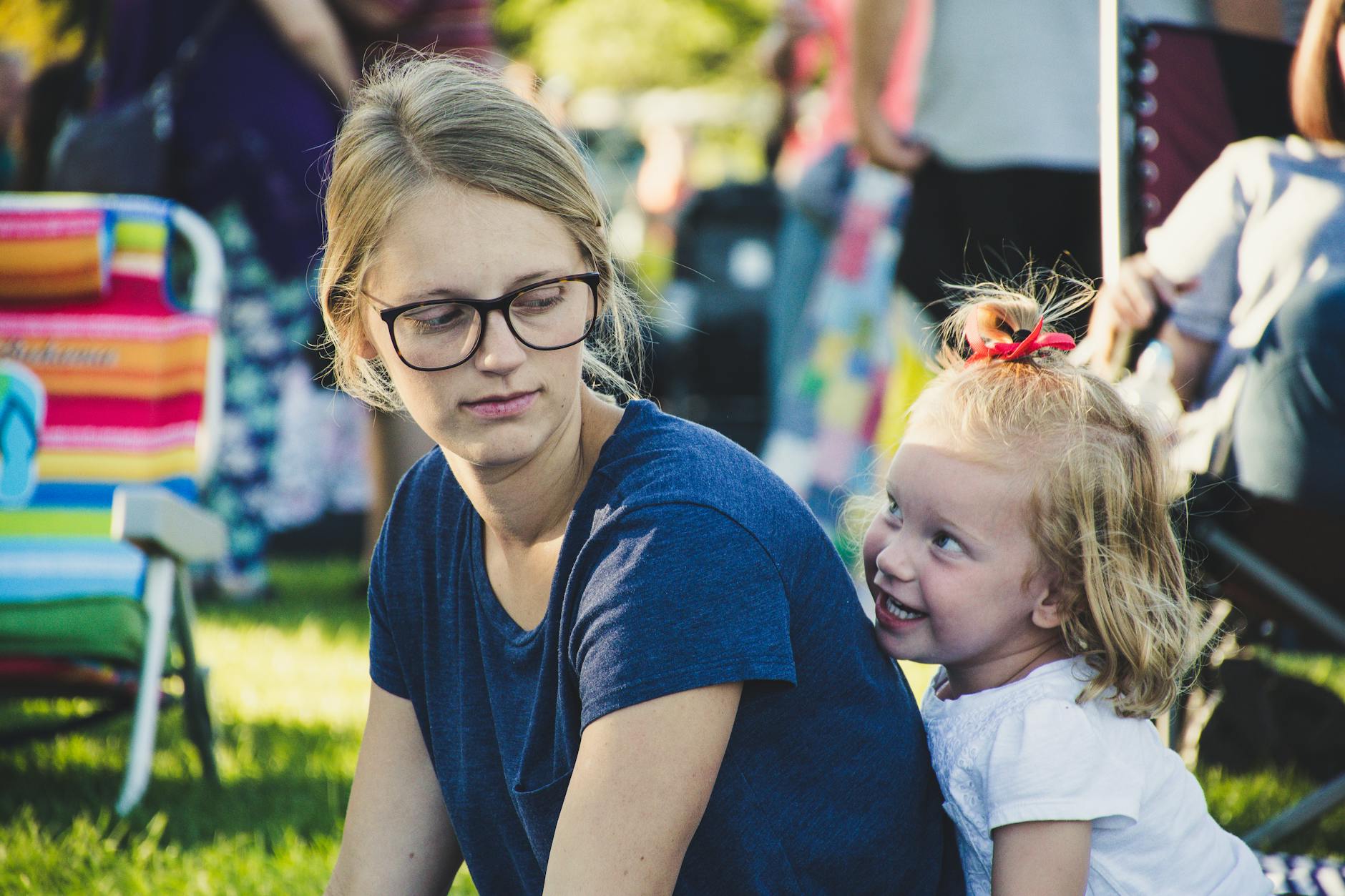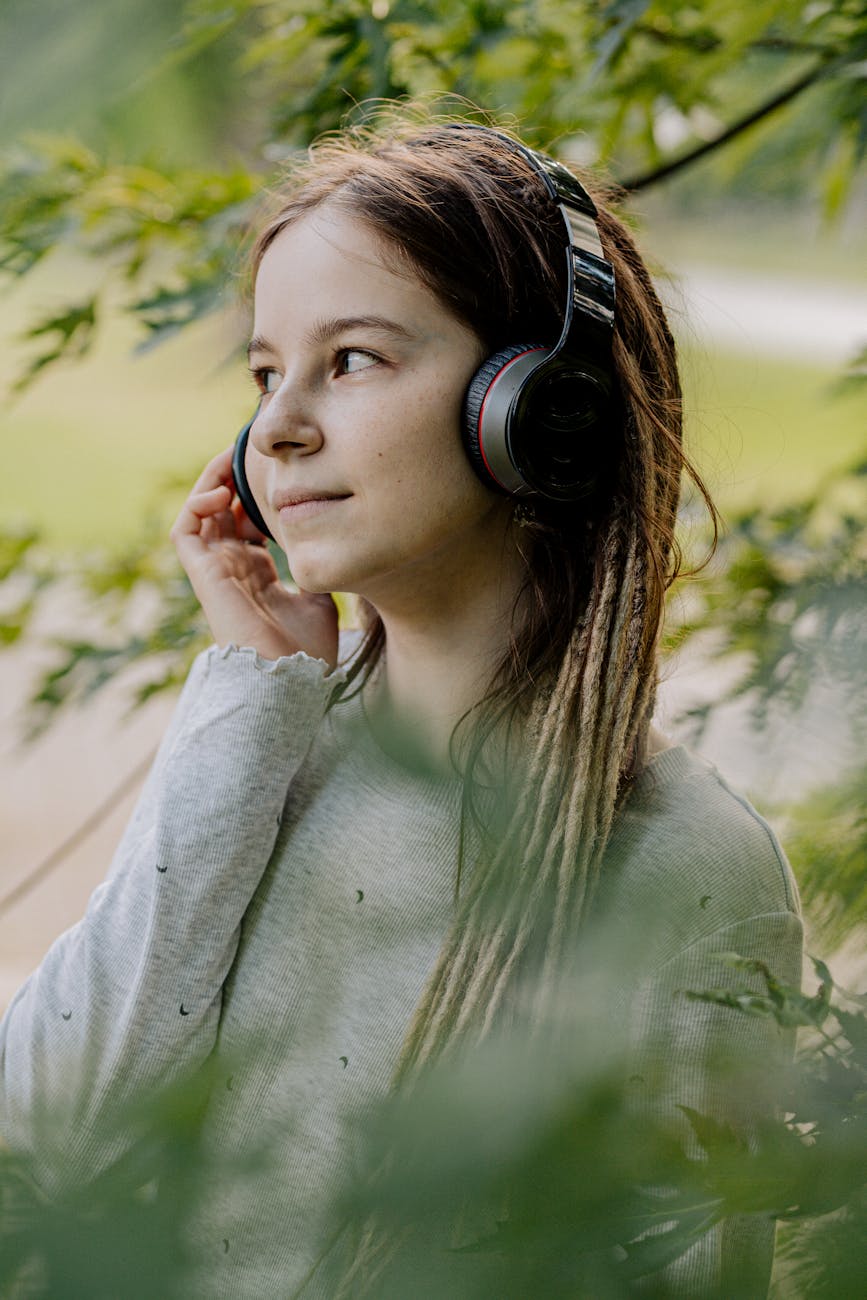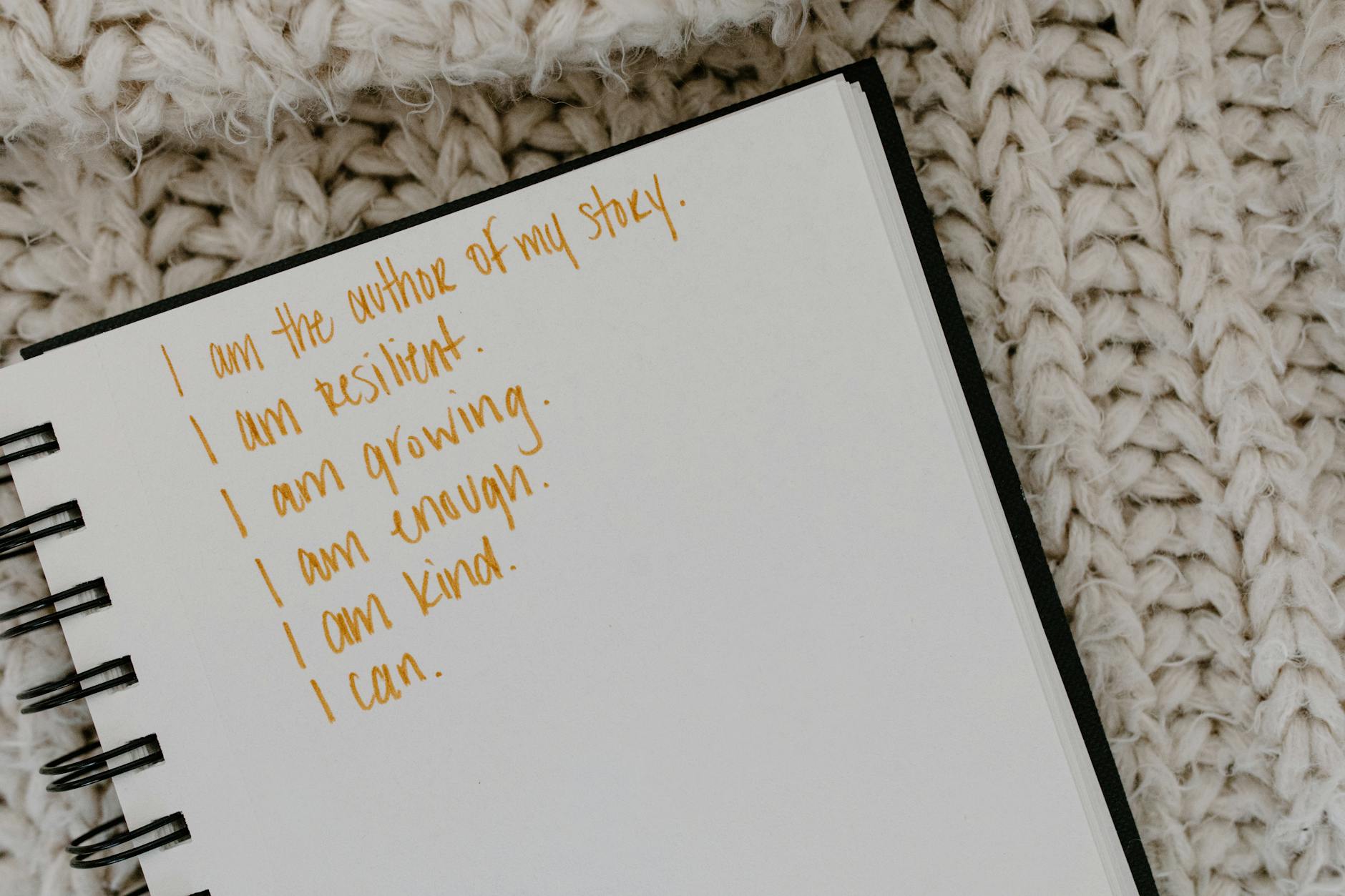Many of us seek safety and comfort in the realm of awareness.
We want to name the problem, imagine solutions, and feel some sense of control.
But the work of parenting, especially parenting through things like burnout, neurodivergence, and family crisis, has taught me that awareness alone isn’t enough.
Because real change, real peace, asks us to enter a much darker, murkier place: acceptance.
Acceptance isn’t neat or tidy. It lives in the territory of grief, and allowing ourselves to enter into the quagmire of grief can feel so intense, so all-consuming, so out of control that it can be easier to stick to the domain of the diagnosis and fixing.
The Unexpected Ways Grief Shows Up in Parenting
People often imagine it’s the big, dramatic moments that stir our deepest grief as parents, the diagnoses, the moves, the heartbreaks.
And sometimes it is.
But in my experience, it’s so often the smallest things that become unexpected portals, little cracks in the dam walls we have built to contain all our deepest fears, shame and vulnerabilities.
Tiny remnants of another life—another you—a different version of your family, catching you off guard.

I once found a small ladybug hairclip buried at the bottom of a bag while cleaning out my closet.
The kind made for a toddler’s soft, wispy fringe.
I used to gently fasten it in my youngest’s hair, over and over, a tiny ritual of love.
I had forgotten it entirely.
But there it was in my palm. Waiting.
And as I held it, tears came.
Quiet. Relentless.
A river I didn’t know I’d dammed.
These moments remind us of the parent we thought we’d be.
Of the dreams we held for our children.
Of the painful, sacred space between those dreams and the life we’re actually living.
Need Grief Resources? Download My FREE Guide
Parenting as a Lifelong Apprenticeship in Grief
Of all the gates through which we enter grief, the one marked “Parent” carries an overflow of emotions for which we often have no words.
We fear that if we open the door to acceptance, we’ll unleash everything we worked so hard to bury.
But there is no bypass.
There is only through.
Perhaps it feels so heavy because we love so fiercely. As Carly Simon sings in Coming Around Again, “there’s more room in a broken heart.”
But that same gate is also one of growth and alchemy.
Parenting is a lifelong apprenticeship with grief. A sacred practice in fierce love, and the slow, continual art of letting go—first of our own bodies as we grow them beneath our hearts, then into the world as we birth them, and finally into themselves as they grow and claim their rightful autonomy.
Your children are not your children.
They are the sons and daughters of Life’s longing for itself.
They come through you but not from you,
And though they are with you yet they belong not to you.You may give them your love but not your thoughts,
For they have their own thoughts.
You may house their bodies but not their souls,Kahlil Gibran

When Burnout Becomes an Awakening
When my own child went into burnout, it wasn’t the glossy, spiritual “awakening” our culture loves to romanticise.
It was an unglamorous unravelling.
A raw reckoning with truths I had long buried.
It connected me to something older, something ancestral.
I saw the cycles of pain that had moved through my family for generations, and how I was passing them on to my children.
I met what Francis Weller calls the second gate of grief: all the places I had not received love.
My nervous system had learned to fawn, mask, and avoid conflict.
I traded my wholeness for safety.
And that’s what I taught my children, too: Don’t be too much. Don’t need too loudly…
“I had to learn that little girls don’t hunger… Enough rules will keep us safe from ourselves.”
Glennon Doyle – Love Warrior
When my daughter went into burnout, her body did the only thing it knew to do: protest. Her burnout became a mirror, reflecting back to me the cost of silence and the legacy of shame we had both inherited.
That experience forced me to confront my own shame and re-examine the rules I had been living by—the unspoken agreements I had unknowingly accepted as a contract with life.
Her body’s response wasn’t a flaw. It was information.
Shame was pointing me toward the parts of myself that needed witnessing. I began to see shame everywhere: in myself, in my parenting, in the subtle ways we use it to control, to teach, to keep order.
And from that truth, a different kind of parent began to emerge.
Stronger. Softer.
More curious. More courageous.
Masking, Hyper-Independence, and the Longing to Belong
I think back to my childhood, when I learned to trade authenticity for acceptance. I always felt different, even before I had words for it.
No matter how hard I tried, I didn’t quite fit.
I became the kid who helped the teacher at lunch instead of risking rejection.
The girl who led everything so she could feel in control.
But the longing to belong didn’t go away. It just went underground.
When I became a mum, the same patterns replayed.
Coffee groups. School gates. Parent associations.

Tiny moments that wouldn’t look like much to others felt like confirmation to my primed nervous system:
You don’t belong here either.
So I kept my heart hidden while aching to be seen.
I know I’m not alone in that.
Especially among neurodivergent folks who have masked for decades.
If that’s you, please know:
You’re not broken for feeling that tension.
You are remembering.
You are protecting something vulnerable inside you.
You don’t have to earn community through performance.
You don’t have to mask your way into safety.
You don’t have to be healed to belong.
Belonging isn’t a prize. It’s a birthright.
Grief Doesn’t Disconnect Us, Shame Does
We live in a culture that says parents should be vulnerable, but only in tidy ways. We’re allowed to admit stress, but not rage.
Not grief.
I grew up being taught to move quickly to positivity.
To smile. To pretend.
To bury sadness, disappointment, frustration, and anger.
So when my children expressed big, hard feelings, I didn’t know how to hold space for them.
I didn’t have a safe space inside myself for those emotions.
When my daughter went into burnout, all the emotions I’d been avoiding crashed over me like a tidal wave.
I had no tools.
No map.
No language.
No rituals for moving through it.
But I learned to sit with it.
To make those monsters my companions.

The Cost of Unprocessed Grief in Parenting
We make grief a villain in our modern culture, or at best an uncomfortable truth; however, unprocessed grief creates distance. It breeds resentment.
It builds walls between us and our children, our partners, our communities.
Anywhere we can’t bring our whole self is a place where only half of us is feeling.
Even in spaces that champion unmasking and authenticity, parents are still often asked to wear a mask.
Smile and say, “It’s hard, but I’m grateful.”
But I’m here to say: grief belongs.
Your full experience belongs.
You are allowed to bring all of you.
Cultivating Self-Compassion to Break the Cycle
Healing doesn’t happen in halfness. Integrity means being whole.
We cannot offer our children compassion, safety, belonging, and truth unless we first offer it to ourselves.
That means tending to the child within us. Not because it was our fault we didn’t get what we needed, but because it’s now our sacred responsibility to break the cycle.
In every parenting moment, we face a choice: we can let shame take the wheel, or we can pause and choose compassion.
Self-compassion isn’t just soft. It’s regulating.
It’s how we send safety to our own nervous systems.
A regulated parent becomes a regulating presence for our children.
One healing breath.
One tender repair.
One courageous truth at a time.
Creating Spaces of True Belonging

Many of us carry the deep sorrow of not being believed, of not receiving the support we so desperately needed, of waiting for a community that never arrived. As humans, our longing for connection is a sacred soul yearning. We are hungry for belonging and yet terrified of rejection, both at once.
I’m building the kind of space where you can show up scared, quiet, unsure, and still be welcome. That’s what From Burnout to Balance is all about: creating safe spaces where parents can bring their whole selves.
It is my heart’s deepest longing to hold space for others in their darkest hours, because I have learned to hold space for myself in mine.
Because we’ve gone too long without places to rest and be real.
You don’t have to do it alone.
You’re allowed to belong.
Even now.
Especially now.
Share Your Story
What about you?
What has your experience of grief been like as a parent?
What were you taught about it?
I’d love to hear your story in the comments below.

I think I have spent years grieving Because I hake d worked so hard to bring my girls up resilient and successful, only to feel that they weren’t and I wasn’t. As they have all been diagnosed on the neurodivergent scale and that I probably am also, although I haven’t received a formal diagnosis, Life has started to change. My children are helping me find out (or re discover) myself , as they are also discovering who they are. They are encouraging me to do things that bring joy. This can be hard when family has always been first, and I often no longer know who I am.
I felt the tears welling up reading your article because I could sooo identify with in.
I have spent my life feeling like a round peg trying to fit into a squire hole, and that no one understands.
Thank you so much for your comment Dianne, I am so glad that this article resonated for you. I am holding your grief with tenderness and compassion for you and also celebrating with you over your rediscovery of yourself and your children.